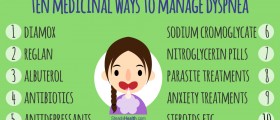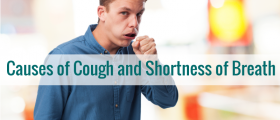
Hypoxemia, also known as hypoxaemia, is described as condition of decreased partial pressure of oxygen in blood as less than 60 mmHg, or causing hemoglobin oxygen saturation of less than 90 percent. Simply put, hypoxemia is health condition characterized by low blood oxygen. Oxygen plays an important role in humans’ health, as it is carried out by the blood to the cells and tissues, to support their metabolic processes. When the blood levels of oxygen fall under the certain level, people may experience shortness of the breath, as one of the most prominent symptoms. Other symptoms of general hypoxia include severe headaches, blue discoloration of the skin, nausea, fatigue, seizures, coma, and in some fatal instances, death.
Causes of hypoxemia
Most frequently, hypoxemia develops as a result of respiratory disorders. Causes that are commonly associated with this symptom are hypoventilation, low inspired oxygen, left to right shunt, ventilation-perfusion mismatch, or diffusion impairment. Certain medications, such as narcotics and anesthetics, which depress breathing, may also be responsible for hypoxemia. This condition is very frequent among the people who travel to altitudes higher than their bodies are typically accustomed to. The aim of altitude/endurance trainings is to strengthen and prepare the body for such a radical altitude change.
Warning signs
Shortness of the breath is something that most of the people experience from time to time, and it doesn’t always have to be associated with some serious health condition. However, one should immediately seek emergency medical help if the shortness of the breath comes on suddenly and affects one's ability to function or if it’s accompanied with headaches, insomnia, fluid retention and cough at high elevations. These can be the signs of pulmonary edema, potentially fatal health condition.
It is recommended to consult a medical expert if one experiences shortness of breath at rest or after slight effort, if the symptom gets worse during the exercise or any other kind of physical activity, or if it obstructs one’s sleep.Treatment of hypoxia
Since hypoxia can quickly escalate in severity, it is important to attempt treatment immediately after diagnosis. Patient should instantly stop smoking and avoid the places where others smoke. Second hand smoke can also be dangerous and cause additional damage to the lungs. Patients are also advised to get regular exercise in order to improve their strength and endurance. Physical exercises may be difficult because of the shortness of the breath but eventually the results of patient’s efforts will show up.

















Your thoughts on this
Loading...